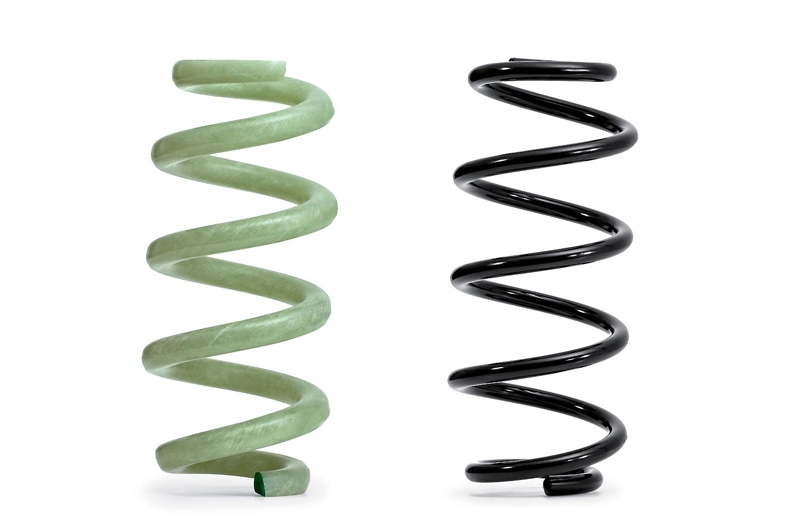Audi is investing heavily in travelling lightly to boost efficiency with new polymer suspension springs
The new, lightweight suspension springs are made of glass fibre-reinforced polymer (GFRP), and will appear in an executive class Audi model before the end of the year. Developed in collaboration with an Italian supplier, their light green colouring immediately sets them apart from conventional steel springs, and they have thicker fibre strands and a slightly larger overall diameter with a lower number of coils. Most importantly, they are some 40 per cent lighter than their more ‘traditional’ counterparts and also contribute to overall reductions, cutting unsprung weight for faster suspension reaction and better road contact.

The GFRP spring (left) next to a 'traditional' steel type
Whereas a steel spring for an executive class model weighs nearly 2.7 kilograms, a GFRP spring with the same properties weighs approximately 1.6 kilograms. Together, the four GFRP springs reduce the weight by roughly 4.4 kilograms, half of which pertains to the unsprung mass, helping the suspension to react more quickly to changes in the road surface and to absorb imperfections more effectively.
The core of the springs consists of long glass fibres twisted together and impregnated with epoxy resin. A machine wraps additional fibres around this core - which is only a few millimetres in diameter - at alternating angles of plus and minus 45 degrees to the longitudinal axis. These tension and compression plies mutually support one another to optimally absorb the stresses acting on the component.
The GFRP springs can be precisely tuned to their respective task, and the material exhibits outstanding properties. It does not corrode, even after stone chipping, and is impervious to chemicals such as wheel cleaners. Last but not least, production requires far less energy than the production of steel springs.
